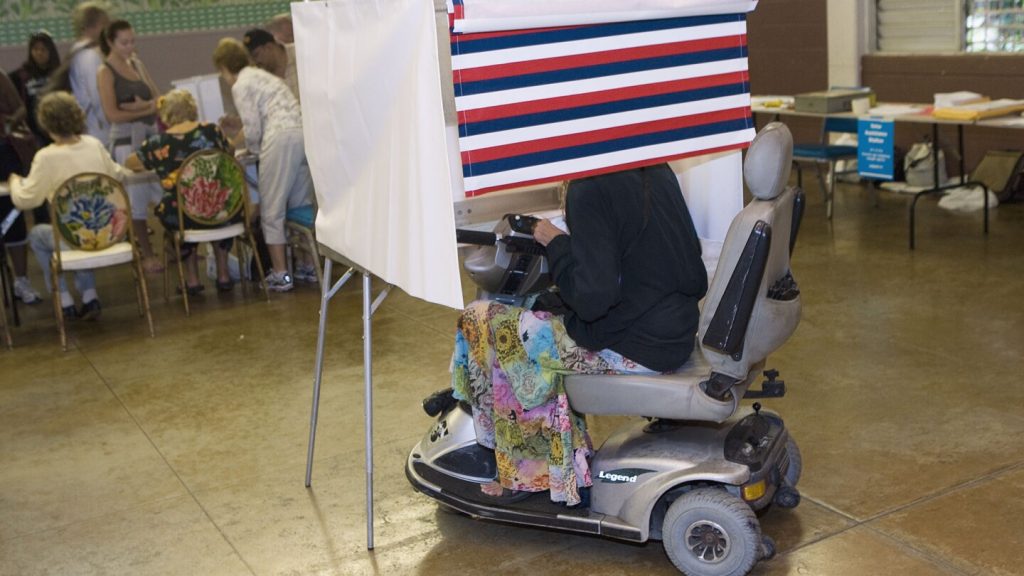A new report from Rutgers University reveals that around 40.2 million eligible voters in the upcoming U.S. presidential election are disabled. When considering those who reside with disabled individuals, this demographic accounts for nearly one-third of the voting population. Despite the growing number of disabled voters due to the aging U.S. population, many barriers still exist that make people feel excluded from the electoral process. These obstacles range from inaccessible campaign materials to a lack of emphasis on issues affecting the disability community from political figures such as former President Donald Trump and Vice President Kamala Harris. Advocates stress the importance of recognizing the significance of disabled voters in shaping the outcome of the election.
The report, led by Lisa Schur and Doug Kruse from Rutgers University, also highlights that there are 7.1 million disabled voters in key battleground states for the election. Disabled individuals face challenges in receiving political information and may encounter difficulties when voting in-person or by mail, leading to decreased participation. For example, Matt Mills, a former Trump supporter with health conditions, believes that voters with disabilities are often overlooked. He emphasizes the importance of feeling represented in politics and expressing concerns about policy decisions affecting individuals with disabilities.
The Trump campaign has faced criticism for its handling of disability issues, including an incident in which the former president was accused of mocking a disabled journalist. In contrast, the Harris campaign has taken steps to engage with the disability community by hiring individuals like Anastasia Somoza as the disability engagement director. Somoza, who has cerebral palsy, works to ensure that campaign events are accessible to disabled individuals, including hosting events with disabled entrepreneurs and advocating for policy changes. Disability advocacy groups stress the need for both presidential campaigns to prioritize accessibility in their outreach efforts to engage disabled voters effectively.
Meighan Stone, who uses a wheelchair due to long COVID symptoms, emphasizes the importance of addressing systemic barriers faced by disabled individuals, such as delays in receiving disability benefits and access to treatments. Stone and other advocates call for campaigns to focus on policies that directly impact the disability community, such as healthcare and long-term care services. Additionally, efforts to train election officials and poll workers on accommodating individuals with disabilities are underway to ensure that every eligible voter can participate in the election process independently and without barriers.
Patti Chang, a blind individual from Chicago, highlights the pervasive feeling of exclusion that people with disabilities encounter not only in politics but in various aspects of society. She emphasizes the need for a more inclusive society that sets higher expectations for individuals with disabilities. As the U.S. Election Assistance Commission works to enhance training for election officials on accommodating disabled voters, the importance of creating welcoming and accessible polling places is emphasized. Ultimately, advocates stress the significance of recognizing the value of disabled voters in shaping the outcomes of elections and building a more inclusive democracy.


